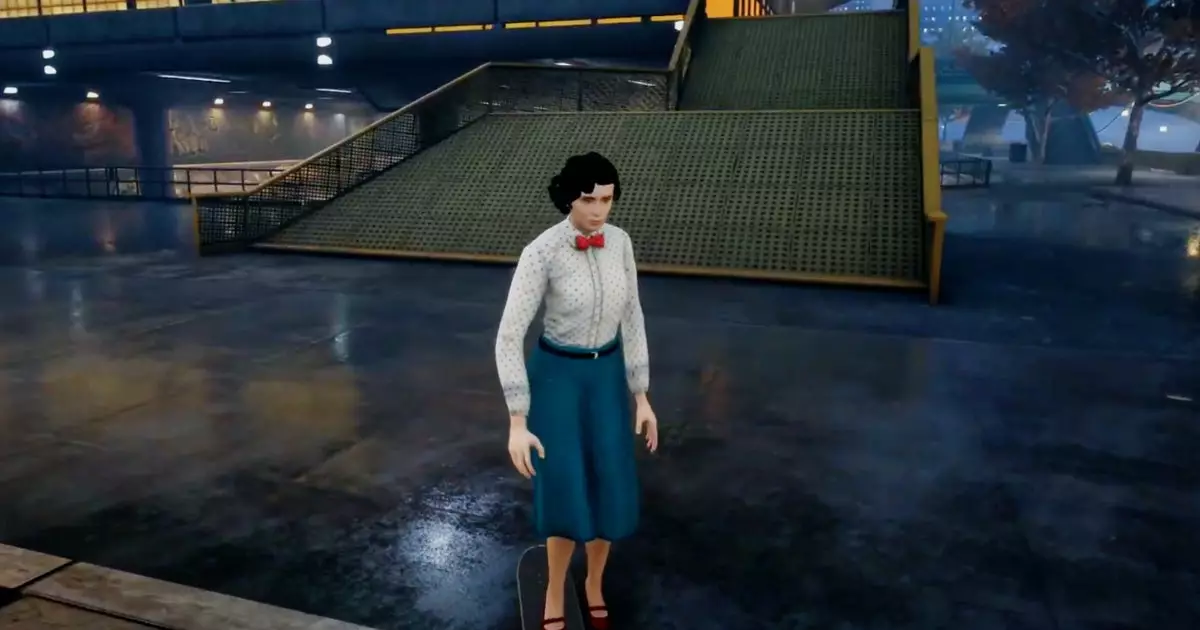The reissue of Tony Hawk’s Pro Skater 3+4 marks more than just a nostalgic return for fans; it signals a new chapter in how gaming communities engage with classic titles. While the core gameplay remains true to its roots—fast-paced skateboarding tricks, iconic maps, and a soundtrack that defined a generation—the real innovation lies in the vibrant, community-driven modifications flooding the scene. This isn’t merely a remaster; it’s a canvas for creativity, experimentation, and humor. The early access, released days ahead of the official launch, showcased a swarm of passionate modders who have redefined what fan engagement looks like in the modern era.
What’s compelling about this resurgence is the seamless blend of reverence and irreverence. The game’s nostalgic appeal is amplified by quirky, inventive character skins, many of which are wholly unexpected. From Tommy Angelo and Tony Soprano to Snow White and Elsa, these mods demonstrate that fans don’t just want to relive old memories—they want to reshape and personalize their experience in absurd, delightful ways. The community’s playful willingness to reinterpret characters from disparate worlds reveals an appetite for radical personalization that keeps the franchise feeling fresh despite its age.
The Power of Community-Driven Innovation
Modder Huckleberrypie’s prolific work stands out as a testament to the transformative potential of user-generated content. Their character swaps, including the whimsical depiction of Mary Poppins tearing up the park with a skateboard, go beyond simple aesthetics—they embed storytelling into gameplay itself. Huckleberrypie’s narratives, while tongue-in-cheek, embody a deeper desire to reimagine these characters in contexts that are both humorous and surprisingly heartfelt.
This phenomenon illustrates a broader truth: modern gaming thrives on community involvement. The availability of tools and platforms like Nexus Mods empowers dedicated fans to carve out their unique corner of the game universe. Notably, mods such as a port from the original game that enhances gameplay features like custom restarts and free-roam cameras demonstrate that the potential for innovation isn’t limited to cosmetic changes. It speaks to a desire for richer, more versatile gaming experiences—something that official releases often only scratch the surface of.
This Cultural Remix Reflects Broader Shifts in Gaming and Nostalgia
What’s particularly interesting about these early mods is their blend of homage and subversion. They celebrate the iconic moments of the franchise while sarcastically parodying the very culture that made it legendary. They also mirror a broader societal trend of remixing and redefining cultural symbols to suit individual identities. In an era where meme culture, fan fiction, and viral videos dominate digital interactions, these modded characters symbolize a collective creative freedom that challenges conventional notions of copyright and artistic boundaries.
Furthermore, this flood of customizations indicates that gaming is increasingly becoming a form of self-expression. Players are no longer passive consumers, but active co-creators shaping their digital worlds. The playful absurdity of seeing Master Chief on a mini-tank or Mary Poppins shredding in the park reveals a mindset that values humor, experimentation, and the breaking down of traditional genre barriers. It’s a testament to the game’s enduring influence and the community’s desire to push its boundaries beyond what the developers initially envisioned.
The launch of Tony Hawk’s Pro Skater 3+4 signals more than a mere nostalgia trip; it’s a celebration of inventive fan culture. The surge of mods exemplifies how passionate communities can breathe new life into established franchises, transforming them into dynamic digital playgrounds. Whether it’s a whimsical Mary Poppins or a gritty Tommy Angelo, these character swaps aren’t just aesthetic add-ons—they’re statements about what modern gaming can be: a space for humor, rebellion, and unabashed creativity. As a cultural phenomenon, this reimagining phase underscores the importance of community agency in shaping the future of interactive entertainment, amplifying the idea that sometimes, the wildest ideas emerge when you loosen the reins and give fans the tools to create their own legend.

